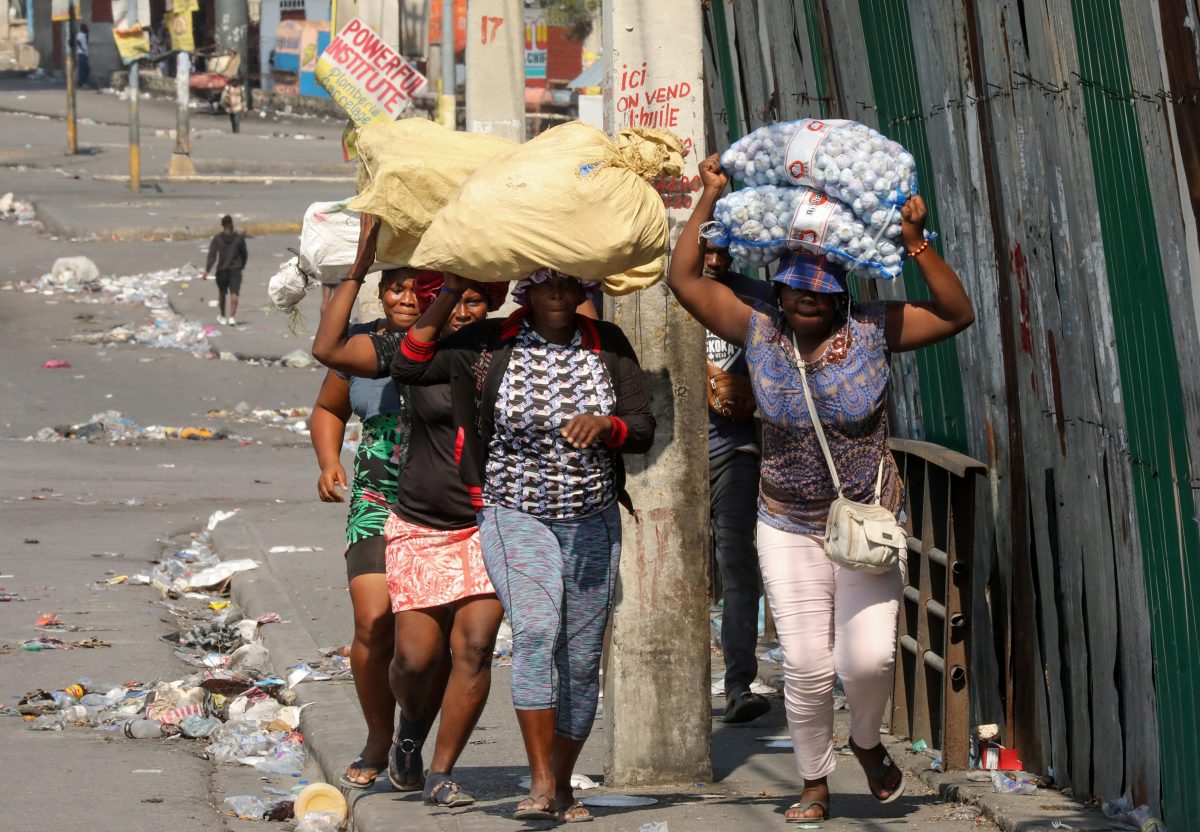PORT-AU-PRINCE, (Reuters) – Haiti’s government today said it would extend a state of emergency in its Ouest Department, the seat of the capital Port-au-Prince, for another month after an escalation in violence from gangs seeking to oust the prime minister while he remains abroad.
A declaration in the Caribbean country’s official gazette said the state of emergency would extend until April 3, with a nightly curfew until March 11.
The government said this was in order to “reestablish order and take appropriate measures to retake control of the situation.”
The state of emergency bans all public protests, day and night, and allows security forces to use “all legal means” at their disposition to enforce the curfew and apprehend those who break it, the government said.
Emergency services, security forces and some journalists will be excluded from curfew, it added.
Authorities first announced the state of emergency on Sunday evening as fighting escalated, thousands of inmates were broken out of prison and an estimated tens of thousands displaced while Prime Minister Ariel Henry had traveled to Kenya to seek its leadership of an international force intended to fight the gangs.
Henry remains in Puerto Rico, apparently unwilling or unable to return to the capital, which has seen gunfire break out around key transport hubs including the international airport. The U.S. has been pushing him to “expedite” a political transition.
Cite Soleil, a hard-hit slum of Haiti’s capital, has seen death rates comparable to Syrian war zones and among Rohingya refugees from Myanmar, according to a survey published by aid group Medecins Sans Frontieres (MSF, Doctors Without Borders) on Thursday.
“I’m used to seeing people killed,” a Haitian MSF staff member said in the report. “I’m used to seeing bodies on the ground. I’m used to seeing charred corpses. I’m used to hearing bangs. Sometimes it’s someone you know.”
The United Nations estimates some 4,700 were killed last year due to the conflict, but MSF said its survey suggested 2,300 deaths in Cite Soleil alone, home to just 9% of the capital’s population.
“It is likely the real scale of the violence is much higher,” MSF said. The aid group had a day earlier reopened a emergency clinic in the capital, shuttered after armed men intercepted an ambulance and executed a patient in the street.
In a statement on Wednesday, the chair of the Caribbean Community (CARICOM) said regional leaders were meeting “around the clock” with government and opposition representatives, but had not yet reached consensus on how to proceed.






